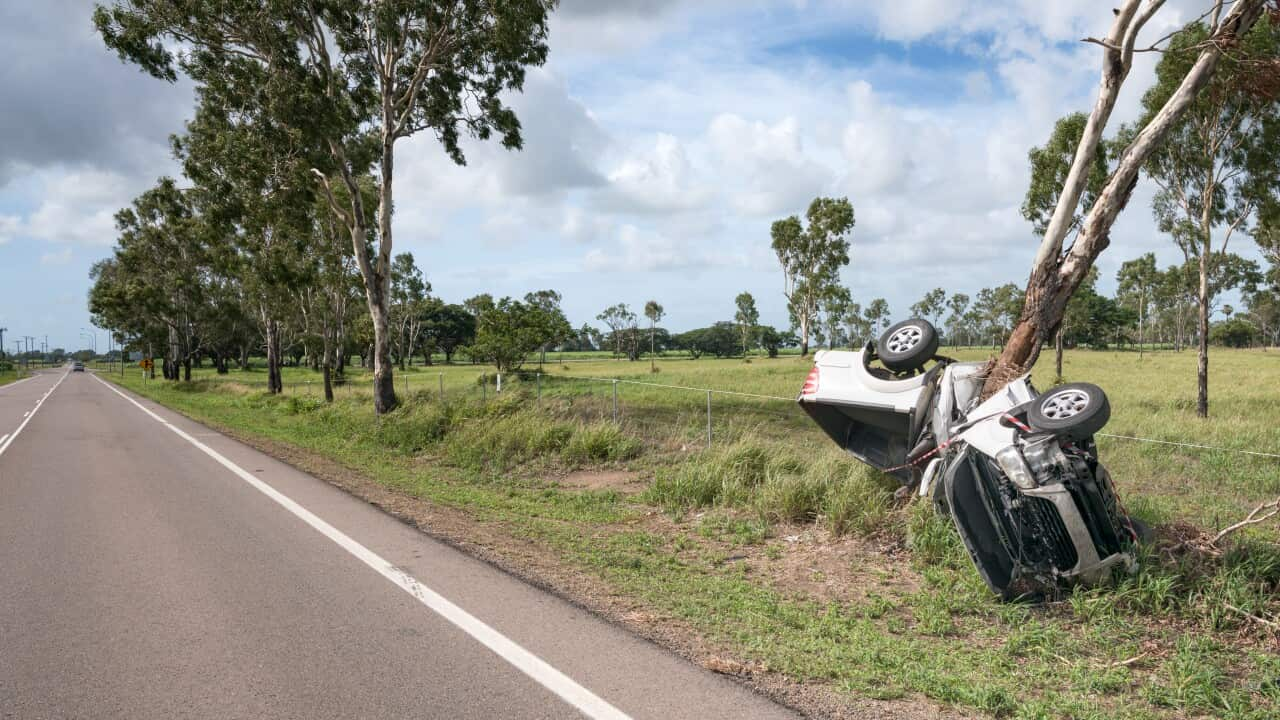Australia is failing to improve road safety, with fatalities rising year-on-year and key targets not being met, according to a new report.
The new Benchmarking of the National Road Safety Strategy report shows 1,205 people in the 12 months to 30 June 2023.
The figure marks a 3.2 per cent rise from the previous 12 months, with 37 more road deaths.
The report by the Australian Automobile Association (AAA) found the greatest rises in fatal accidents were recorded in Victoria, New South Wales, Western Australia and South Australia, and only one state or territory was on track to achieve national safety goals.
According to the report, Australia is not on course to achieve the National Road Safety Strategy (NRSS) targets, including halving road deaths by 2030.

A new report shows 1,205 people died on Australian roads in the 12 months to 30 June 2023. Source: SBS News
Key targets are to reduce the annual number of fatalities by at least 50 per cent and serious injuries by at least 30 per cent by 2030.
The AAA warned not enough data was being recorded about injuries and accident locations, making it harder to pinpoint dangers and prevent deaths.
Victoria recorded the greatest increase in road deaths at 13.2 per cent, followed by New South Wales at 12.8 per cent, and Western Australia with 12.9 per cent.
The Northern Territory, Tasmania, Western Australia and South Australia also recorded higher than average road deaths for their population, with the national average sitting at 4.59 deaths for every 100,000 people.
AAA managing director Michael Bradley said the figures showed only one jurisdiction – the NT –was on track to lower its road toll in time to meet the target.
"Cars have never been safer and road funding never higher and yet road fatalities are climbing," he said.
"A new approach is needed, starting with national statistics to guide law enforcement, road investment and policy change."
But reducing injuries from road accidents would be difficult, Mr Bradley warned, as no government reported information about injuries as part of their data.
He said the federal government should compel state and territory governments to collect the information as part of a new funding agreement due to be set in July next year.
Additional information, he said, should include the location of road deaths, the road conditions involved, and any causes including alcohol, drugs or distractions.
"You can't improve what you don't measure and when it comes to road trauma, the Australian government is measuring very little," he said.
"In 2023, Australia is unable to adequately quantify the extent of road trauma, or the effectiveness of interventions being deployed to reduce it."
The National Road Safety Strategy, passed in February, set out a series of targets to address injuries and deaths on roads, including improving regional and remote road safety, improving the adoption of new vehicle safety technology, and eliminating road deaths in city centres.











